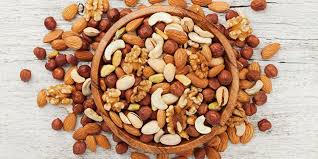
19 Cholesterol Friendly Foods for a Healthy Heart
Incorporating cholesterol-friendly foods into your diet is a proactive step towards maintaining a healthy heart. This guide will explore a variety of delicious and nutritious options packed with heart-healthy nutrients to help you manage your cholesterol levels effectively. From fiber-rich oats to omega-3 fatty acid-rich fatty fish, discover how simple dietary choices can support your cardiovascular health.

Maintaining healthy cholesterol levels is crucial for cardiovascular health. Making dietary choices that help manage cholesterol levels can significantly impact your well-being. In this post, we’ll explore some cholesterol-friendly foods that offer various benefits for your heart health. By incorporating these delicious and nutritious options into your diet, you can take proactive steps toward supporting optimal cholesterol levels.
Cholesterol-Friendly Foods Overview
Oats:
Start your day with a bowl of oats, a fiber-rich whole grain. Oats contain soluble fiber called beta-glucan, which helps lower LDL (bad) cholesterol levels. This soluble fiber forms a gel-like substance in the digestive system, reducing cholesterol absorption. Enjoy oatmeal, overnight oats, or incorporate oats into homemade granola bars for a heart-healthy kickstart to your day.
Fatty Fish:
Fatty fish like salmon, mackerel, and sardines are excellent cholesterol-friendly foods sources of omega-3 fatty acids. These healthy fats have been shown to reduce triglyceride levels, lower blood pressure, and improve heart health. Omega-3 fatty acids also help increase HDL cholesterol and reduce inflammation. Aim to incorporate fatty fish into your meals at least twice a week for optimal benefits.
Nuts:
Almonds, walnuts, pistachios, and other nuts are cholesterol-friendly foods rich in unsaturated fats, fiber, and plant sterols, all of which can help lower LDL cholesterol. Nuts also provide a good source of omega-3 fatty acids and other heart-healthy nutrients. However, they are calorie-dense, so enjoy them in moderation as a snack or as a crunchy addition to salads or oatmeal.

Legumes:
Beans, lentils, and chickpeas are excellent cholesterol-friendly foods sources of plant-based protein and soluble fiber, making them a smart choice for managing cholesterol levels. Soluble fiber forms a gel in the digestive system, reducing cholesterol absorption. Legumes are also low in saturated fats and rich in minerals and antioxidants. Incorporate them into soups, stews, salads, or enjoy them as a standalone side dish.
Olive Oil:
Replace saturated fats with heart-healthy olive oil in your cooking. Olive oil is rich in monounsaturated fats and antioxidants, which can help improve cholesterol levels and reduce inflammation. Use olive oil in salad dressings, as a cooking oil, or as a dip for whole-grain bread.
Berries:
Colorful cholesterol-friendly foods bursting with antioxidants, berries like blueberries, strawberries, and raspberries offer numerous health benefits. They are rich in fiber, vitamins, and plant compounds that support heart health. Berries can help reduce LDL cholesterol oxidation, decrease inflammation, and improve overall cardiovascular health. Enjoy them as a snack, add them to smoothies, or sprinkle them over yogurt or oatmeal.
Dark Chocolate:
Yes, you read that right! Dark chocolate (70% cocoa or higher) in moderate amounts can contribute to heart health. Dark chocolate contains flavonoids, antioxidants that help improve blood flow, reduce blood pressure, and protect against LDL cholesterol oxidation. Indulge in a small portion of dark chocolate as a treat or use unsweetened cocoa powder in baking for a healthier dessert option.
Garlic:
Garlic has been used for its medicinal properties for centuries. It contains compounds that help lower LDL cholesterol, prevent blood clotting, and reduce blood pressure. Incorporate fresh garlic into your cooking or add it to homemade dressings and sauces for a flavorful and heart-healthy boost.
Green Leafy Vegetables:

Leafy greens like spinach, kale, and Swiss chard are cholesterol-friendly foods packed with nutrients, including lutein, fiber, and plant sterols. These components can help lower cholesterol levels, reduce inflammation, and improve overall heart health. Add a variety of leafy greens to salads, soups, stir-fries, or smoothies to reap their cholesterol-lowering benefits.
Flaxseeds:
Flaxseeds are a rich source of omega-3 fatty acids, fiber, and lignans, which can help lower LDL cholesterol and triglyceride levels. Sprinkle ground flaxseeds onto yogurt, oatmeal, or smoothies to reap their cholesterol-lowering benefits.
Soy Products:
Soy-based foods like tofu, tempeh, and edamame are excellent cholesterol-friendly foods sources of plant-based protein, fiber, and healthy fats. Soy protein has been shown to reduce LDL cholesterol levels, making it a heart-healthy alternative to animal-based proteins.
Whole Grains:
Whole grains such as brown rice, quinoa, and whole wheat bread are cholesterol-friendly foods packed with fiber, vitamins, and minerals. The soluble fiber in whole grains helps lower LDL cholesterol and maintain healthy blood sugar levels. Choose whole grain options over refined grains for maximum benefits.
Apples:
The saying “an apple a day keeps the doctor away” holds some truth when it comes to heart health. Apples are rich in soluble fiber called pectin, which helps lower LDL cholesterol levels. They also contain antioxidants that contribute to cardiovascular health.
Red Wine (in moderation):
Moderate consumption of red wine has been associated with heart health benefits. Red wine contains antioxidants like resveratrol, which may help increase HDL cholesterol and reduce LDL cholesterol oxidation. Remember, moderation is key, and excessive alcohol consumption can have adverse effects on health.
Turmeric:
Turmeric is a vibrant yellow spice commonly used in curries. It contains a compound called curcumin, which has anti-inflammatory properties and may help lower LDL cholesterol levels. Incorporate turmeric into your cooking or consider adding a turmeric supplement to your routine after consulting with a healthcare professional.
Citrus Fruits:
Citrus fruits like oranges, grapefruits, and lemons are cholesterol-friendly foods packed with vitamin C, fiber, and antioxidants. The soluble fiber in citrus fruits can help lower LDL cholesterol levels. Enjoy these fruits as a snack, in salads, or as a refreshing addition to water.
Tomatoes:
Tomatoes are rich in lycopene, an antioxidant that has been associated with heart health benefits. Lycopene may help lower LDL cholesterol levels and reduce inflammation. Enjoy tomatoes in salads, sauces, or as a base for homemade salsas.
Green Tea:
Green tea is renowned for its health-promoting properties, including its potential to support heart health. It contains antioxidants called catechins, which may help lower LDL cholesterol and triglyceride levels. Swap sugary beverages with a cup of green tea for a heart-healthy beverage choice.
Avocados:
Avocados are not only creamy and delicious but also rich in monounsaturated fats. These healthy fats help increase HDL (good) cholesterol while lowering LDL cholesterol. Additionally, avocados are a good source of dietary fiber and contain beneficial plant compounds called phytosterols, which can further aid in managing cholesterol levels. Add sliced avocados to salads, spread them on whole-grain toast, or whip up a flavorful guacamole.

Managing cholesterol levels is an essential part of maintaining a healthy heart. By incorporating these cholesterol-friendly foods into your diet, you can improve your lipid profile, support cardiovascular health, and enjoy a delicious and varied menu. Remember, maintaining a balanced diet, regular physical activity, and overall healthy lifestyle choices work in tandem to promote optimal heart health. Consult with a healthcare professional or a registered dietitian for personalized guidance on managing your cholesterol levels.
Disclaimer: The information provided in this content is for general informational purposes only. It is not intended as medical or healthcare advice, diagnosis, or treatment. Always seek the advice of a qualified healthcare professional with any questions you may have regarding a medical condition or healthcare decisions.
















Amazing post Gemma thank you for all your hard work your content is really helping me and my family.
Thank you so much for your incredibly kind words! It brings me immense joy to know that my content has been helpful to you and your family.
Please know that I am always here to help and support you and your family in any way I can. If there are specific topics or areas you would like me to cover, please feel free to let me know, and I will do my best to address them.
Sending my warmest wishes to you and your family.